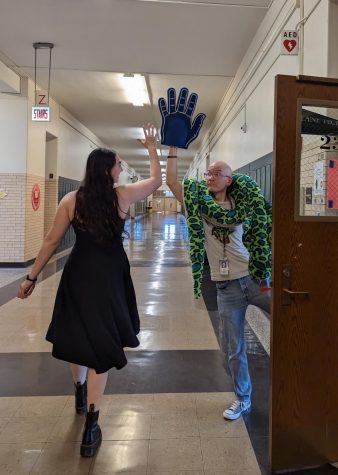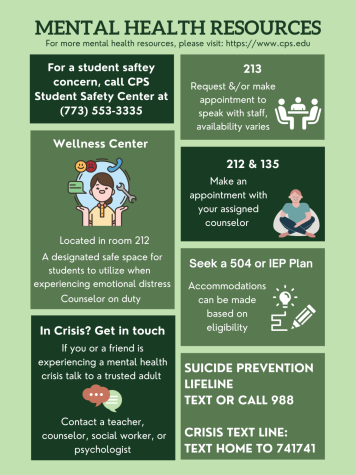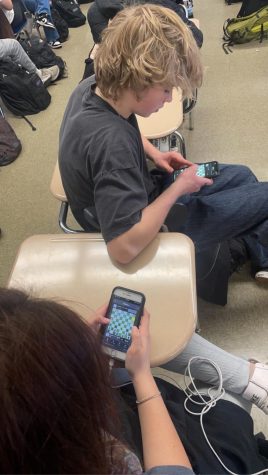Life in a world defined by heteronormativity
February 13, 2015
Pansexual, bi-sexual, transexual, transvestite, two-spirited, transgender, straight-acting, polyamory, metrosexual, male lesbian, lesbian, intersexed person, intergender, homosexual, genderqueer, cross-dresser, cissexual, asexual, and agendered, are just some of the terms people use to self-define their sexual and gender identity.
“I think sexuality should be reconsidered: not as fluid — because a lot of people are already on the bandwagon there — but personal,” said Aaron Phalin, Div. 567. “There isn’t a truly successful way to categorize anyone under the lines of sexuality.”
For some high school students it is still a process of self-discovery. Phalin defines himself as undefined.
“Being undefined isn’t something I would blatantly say because it’s not immediately understood,” Phalin said. Not defining oneself can easily be misunderstood because there is no dictionary validation.
Natalie Baumgardner, Div. 570, found more definitions and types of sexuality on Tumblr than she had ever thought.
Both Baumgardner and Phalin believe that there is such thing as heteronormativity. There are expectations for adolescents: boy meets girl. Media accentuates how people are supposed to live, books write it, schools expect it, and movies like “The Notebook” do not leave much to the imagination with what society expects of young love: people are supposed to find eternal love with someone of the opposite sex.
Baumgardner discovered she was gay at age six. To her, being gay is about being yourself. She was “in the closet” until age 16. During that time, the differences between society and how she identified herself made it so that she only had one good friend. Being in a relationship opened her up and made her able to relate to people more and more.
Some people don’t know what they are right away.
“It was really an accumulating series of understandings,” Phalin said. “I was late in understanding sexual innuendos, and later in finding homosexual attractions.”
According to Baumgardner, being able to come out and say who one is, is an important part of finding oneself. Adolescence is generally credited with self-discovery. Baumgardner tries to support that especially within the Smile You’re Beautiful club, which she helped create. She participates in the Day of Silence every year and even decorates her locker with rainbow Duct Tape so that anyone who wants to participate can easily find her and join in. The Day of Silence is meant to make a statement about all the voices that cannot be heard due to suicides, particularly among teens and youths.
If Baumgardner could give one piece of advice to anyone who feels like they do not quite fit in, she would say: It’s going to get better.






